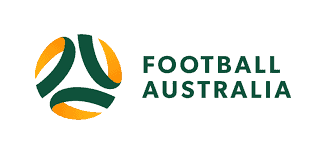In Round thirteen of this year’s National Premier League season, Frank Cachia, Head Coach of the Canberra Olympic women’s team, celebrated an incredible milestone, his 200th game as a National Premier League coach.
Cachia is a well-known figure in the football community and is arguably one of the most successful senior coaches that the ACT has seen in the last decade. In his 200 games as a Head Coach, the amiable Cachia has led his teams to some quite impressive achievements.
Over his years, he has managed secure a treble in 2022 during his time with the Monaro Panthers, as well and three other league championships, two Australia Cup qualifying wins, two Grand Final wins and three victories in the Charity Shield during his previous stint with Canberra Olympic.
One of his greatest accomplishments was leading his team to secure a spot in the semi-final of the Australia Cup in 2016, which is the furthest point that any other team in the ACT has managed to reach! On top of all of this, he is also a commentator for NPL matches!
So far through his coaching career, Cachia has never been one to keep track of all his wins and losses, but instead invests his heart into all his past and present players.
“I suppose for me to get to 200 games, I always keep track of my stats, but I never really paid too much attention to where I was at until the beginning of this year and thought ‘wow we’re getting pretty close now!’” he shared.
“It means a lot, but I sort of said to the girls ‘you know, there’s 130 odd wins there and I don’t remember all of those, but I remember every player that I have coached’. Even during the week, I got messages from players and that is probably what means the most. Even today, there a fair few of the old Monaro boys that have turned up, and that’s the impact and that’s what means most to me.”
Cachia began working towards his coaching career once he realised how much he enjoyed the underlying tactical side of football. He also soon came to realise that the skills he developed throughout his career as a coach, as well as his career outside of football, were transferable to each role.
“I have always enjoyed the tactical side of things, and I coached a lot of juniors before I got into the senior grades. I guess there was a fair bit of success there,” Cachia said. “A good way to put it is that I wanted to be able to get players to do things that I couldn’t do as a player myself.
“Even what I do with work, the skills that you use as a coach, you can also use as a manager, they sort of work hand in hand. It’s just one of those things that you probably don’t set out to do it, but you sort of just evolve into that role.”
Cachia has made it very clear that his driving factor to continue in his role has nothing to do with his own success, but more so to do with guiding other to real their fullest potential and greatest achievements. When asked why he returns to the role year after year, he responded:
“I’m a lunatic! No, I mean I love the players, I love watching them reach success, I love seeing people fulfill their goals. Seeing someone who has come through the grades and achieve something like playing first grade, maybe even win a title, just seeing them grow in confidence, not just as a player but also as a person, that’s the main thing, I think. That’s what probably gets me back.”
Cachia acknowledges that his role as a head coach has always provided him with continuous opportunities to learn and grown himself, and that his career has had such a large impact on his life.
“There’s so many [impacts], and you keep learning,” he commented. “Two games are never the same, two seasons are never the same. The way you talk to players, two players will never be the same.
“There will be similarities, but I think that’s what really keeps you on your toes. You’ve got to be adaptable; you’ve got to be flexible; you’ve got to be able to change the way that you do things to get the best out of the players that you have got or the club that you have got.
“When I first started coaching, I always coached the way that I would like to be coached. But what I think I have found over time is that that works for me, but you have got to coach the way that other people want to be coached, how the players want to be coached.
“I think there’s a bit of a term where we say, ‘you don’t coach the player, you coach the individual’. So, you’ve got sixteen or so individuals in there, all of whom have got different backgrounds, they’ve come to the game, however they have arrived, so you’ve got to be able to, like I said, be able to adapt and make sure that you’re individualising each message to suit them and resonate with them.”
Cachia does not ignore the fact that his role has had many highs and lows. Upon reflecting on his career, he shared that his greatest highlight is the 2016 Australia Cup semi-final, but his biggest regret was not having his late father around to see him succeed in the position.
“A highlight, I think, would have to be the 2016 semi-final in the Australia Cup,” he shared. “You know, I’m walking out and I’m coaching against Graham Arnold, we were playing a Sydney FC side who had wiped the floor with the Western Sydney Wanderers the week before, everyone was fearing it, people were talking on social media that we were going to get beaten by 10. To walk away having really given a good account of ourselves, and only going down three-nil.
“I suppose my biggest regret, and I know this is probably a bit of a ‘downer’ on the whole thing, but last Friday was the anniversary of my father’s passing, and he never saw me do any of this, it was thirteen years ago that he passed away. I guess for me, my biggest regret is not having him around to see it, that would be it.”
Cachia pulled quite the crowd to his 200th match last Wednesday. Not only was his family there to support him, but also some of his players from his past clubs and teams came to witness the Canberra Olympic Women’s team 2-1 win over the West Canberra Wanderers.
“I love seeing my kids here, and that my wife is here watching.” Cachia said. “It’s them who see me before training, they are the ones that see me after a game when I’m frustrated. 200 odd games probably equate to 600 odd trainings at the very least, and that doesn’t even count all the preseasons.
“You now, 200 times I’ve stood in front of players and talk about how I believe they can win. Then at half time, we go through it again. It’s a big milestone when you look at the numbers like that! All the numbers aside, the fact that I could get players from my old club, all through the week they’ve been messaging me.”
After great success and achieving such monumental milestones, Cachia certainly has made his mark in many ways on the Canberra football community. When asked to share his main piece of advice to someone aspiring to reach a position such as the one he is in now, he responded with one simple statement:
“You’re not going to make everyone happy,” he commented. “You’re going to have to live and die by your own decisions so if you’re going to go down, go down on your own terms.”
Capital Football wishes to congratulate Frank Cachia on achieving his milestone of 200 games as a Head Coach in the National Premier League, as well as the impact he has had on the game over the last decade.
Words: Kate Reedy











